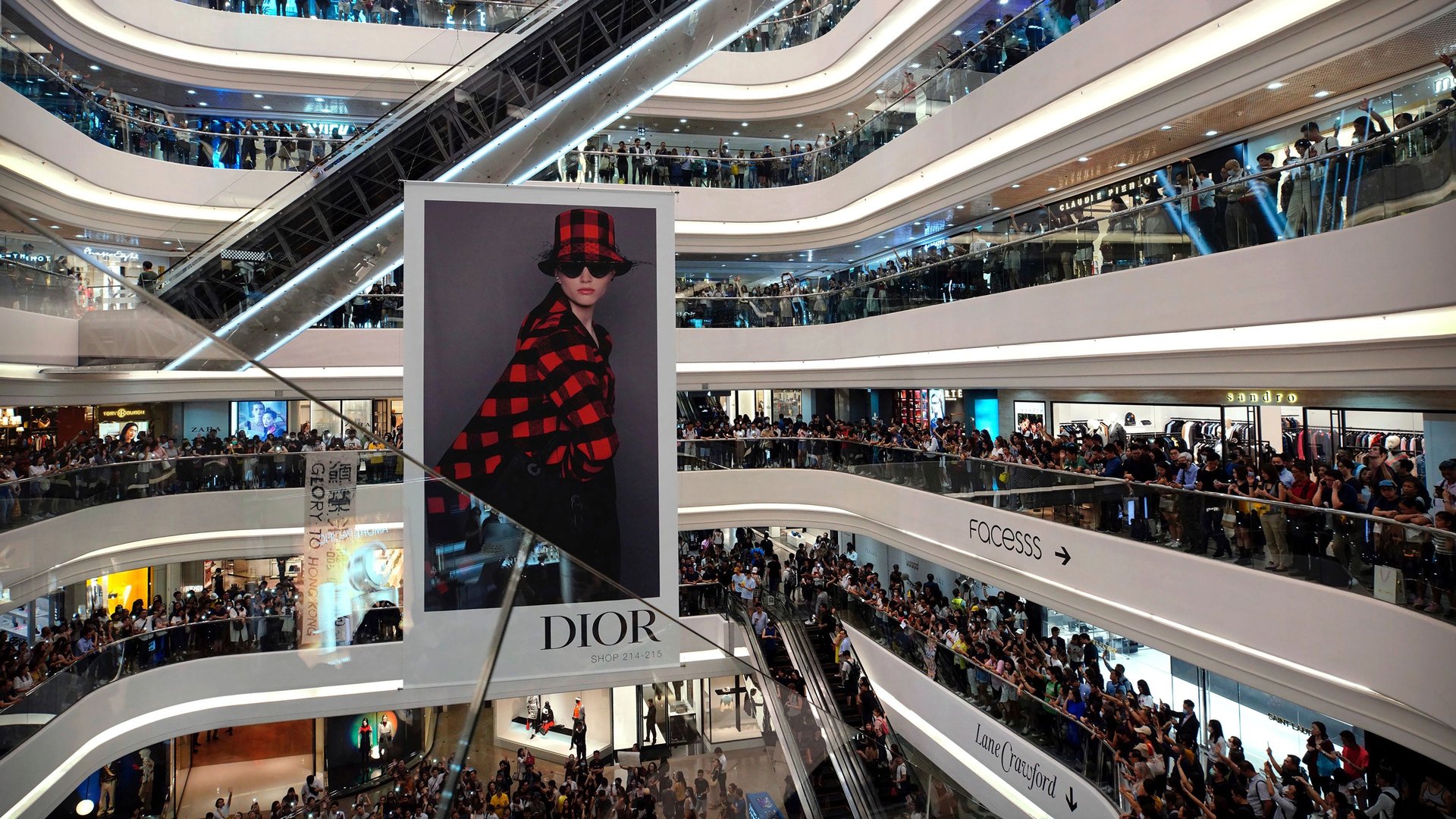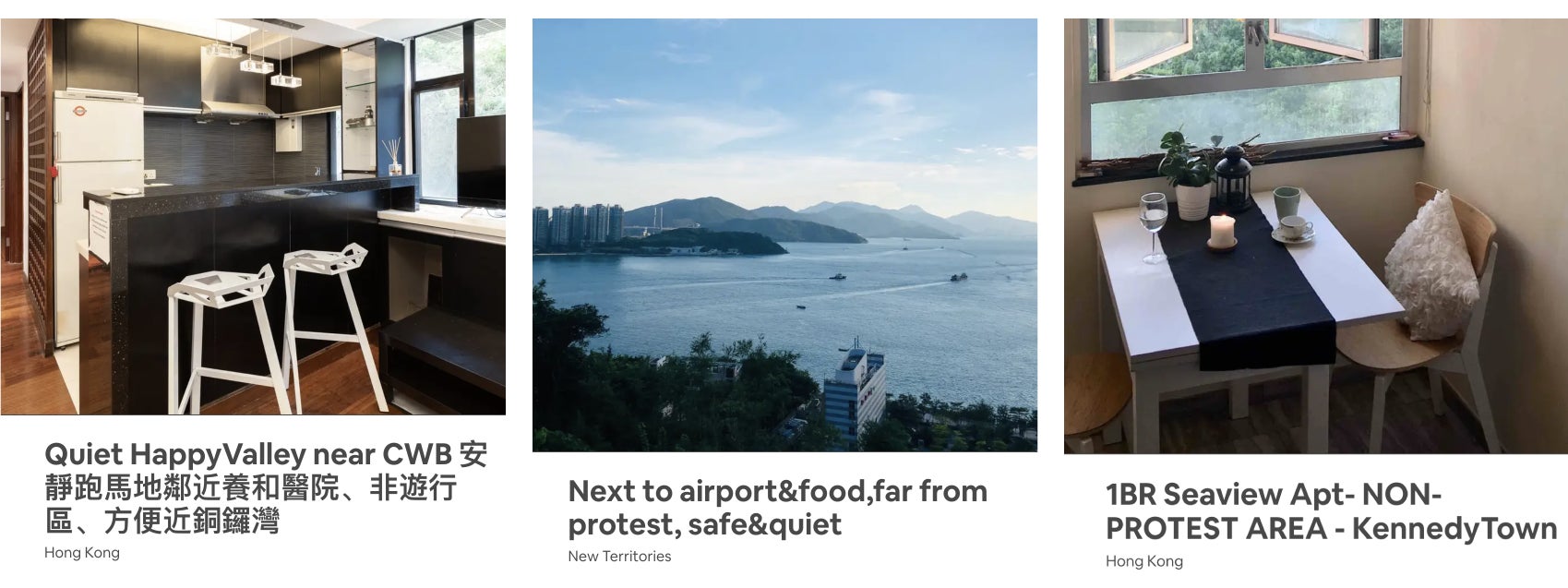Hong Kong’s Airbnbs started to go vacant as protests intensified
Hong Kongs busiest travel season is coming, but it’s looking like few tourists will make the trip this year.


Hong Kongs busiest travel season is coming, but it’s looking like few tourists will make the trip this year.
The months-long protests in the city have deterred both leisure and business travelers. Short-term rental hosts have seen fewer bookings since the demonstrations started in June, as have hotels. With a significant portion of Hong Kong’s jobs dependent on tourism, the island’s economy faces a reckoning if the trends continue.
Only half of the rentals listed on Airbnb saw bookings come through in October, according to the latest data available from AirDNA, short-term rentals analyst. More than 70% were booked in October last year. The number of listings on Airbnb have increased 9% during the one-year period. On top of the lower occupancy, hosts of entire homes lowered their rates an average of 17%, compared to the year before. Nightly prices dropped from $138 to $115.
The decline in occupancy rates spread beyond neighborhoods like Central and Wan Chai where the most protests took place.
Most of the protests and clashes between the Hong Kong police and protesters took place in tourist hotspots like the Victoria Park and Tsim Sha Tsui, a high-end shopping area. In the Central and Western District and the Wan Chai District, occupancy rates fell 24 and 27 percentage points from a year ago, respectively. About 40% of Hong Kong’s short-term rentals are in those areas.
Perhaps to combat the plunge in bookings, some hosts have updated their listings. The name of a private room along the west coast of Hong Kong Island was changed from “1BR Kennedy Town Sea View Apartment” to “1BR Seaview Apt- NON-PROTEST AREA – KennedyTown.” Some hosts used Chinese to add “non-protest area” (非遊行區) to their listing.

The entire tourism industry felt the impact. The 301 hotels in Hong Kong provide over 83,000 rooms for tourists everyday. That’s about 10-times more rooms than short-term rentals like Airbnb. The occupancy rate across all hotels fell to 68% in October this year from 92% a year ago, according to preliminary figures released by the Hong Kong Tourism Board. The average nightly rate dropped 27%, from HKD $1,556 to $1,135 ($200 to $146 in USD.)
Mainland Chinese tourists, who made up almost 80% of all visitors in Hong Kong last year, avoided Hong Kong when planning for their next vacation. Organizers of concerts, conferences, and competitions cancelled events due to safety concerns for guests.
Tourism plays an important role in Hong Kong’s economy, which is almost entirely dependent on the service sector. The travel industry accounted for about 4% of Hong Kong’s GDP in 2018 and employed about 7% of Hong Kong’s workforce.
The tourism slowdown along with a trade war between China and the US dragged Hong Kong’s economy down. GDP shrank 2.9% in the third quarter compared to a year before. It was the first quarterly decline since the 2009 financial crisis.